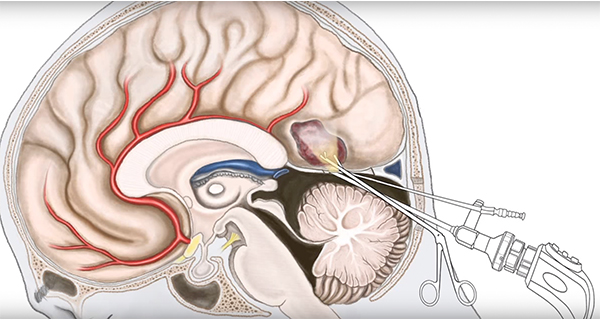
#BrainTumor #SymptomsandSigns – Brain Tumor – Symptoms and Signs: On this page you will find out more about body changes and other things that can signal a problem that may need medical care. To see other pages, use the menu.
People with a brain tumor may experience the following symptoms or signs. Sometimes, people with a brain tumor do not have any of these changes. Or, the cause of a symptom may be another medical condition that is not a brain tumor.
Symptoms of a brain tumor can be general or specific. A general symptom is caused by the pressure of the tumor on the brain or spinal cord. Specific symptoms are caused when a specific part of the brain is not working well because of the tumor. For many people with a brain tumor, they were diagnosed when they went to the doctor after experiencing a problem, such as a headache or other changes.
General symptoms include:
1. Headaches, which may be severe and worsen with activity or in the early morning
2. Seizures. Motor seizures, also called convulsions, are sudden involuntary movements of a person’s muscles. People may experience different types of seizures, including myclonic and tonic-clonic (grand mal). Certain drugs can help prevent or control them. The differences between these types of seizures are listed below:
Myclonic
– Single or multiple muscle twitches, jerks, spasms
Tonic-Clonic (Grand Mal)
-Loss of consciousness and body tone, followed by twitching and relaxing muscles that are called contractions
-Loss of control of body functions
-May be a short 30-second period of no breathing and a person may turn a shade of blue
-After this type of seizure a person may be sleepy and experience a headache, confusion, weakness, numbness, and sore muscles.
Sensory
-Change in sensation, vision, smell, and/or hearing without losing consciousness
Complex partial
-May cause a loss of awareness or a partial or total loss of consciousness
-May be associated with repetitive, unintentional movements, such as twitching
Personality or memory changes
Nausea or vomiting
Fatigue
Drowsiness
Sleep problems
Memory problems
Changes in ability to walk or perform daily activities
3. Symptoms that may be specific to the location of the tumor include:
Pressure or headache near the tumor
Loss of balance and difficulty with fine motor skills is linked with a tumor in the cerebellum.
Changes in judgment, including loss of initiative, sluggishness, and muscle weakness or paralysis is associated with a tumor in the frontal lobe of the cerebrum.
Partial or complete loss of vision is caused by a tumor in the occipital lobe or temporal lobe of the cerebrum.
Changes in speech, hearing, memory, or emotional state, such as aggressiveness and problems understanding or retrieving words can develop from a tumor in the frontal and temporal lobe of the cerebrum.
Altered perception of touch or pressure, arm or leg weakness on 1 side of the body, or confusion with left and right sides of the body are linked to a tumor in the frontal or parietal lobe of the cerebrum.
Inability to look upward can be caused by a pineal gland tumor.
Lactation, which is the secretion of breast milk and altered menstrual periods in women, and growth in hands and feet in adults are associated with a pituitary tumor.
Difficulty swallowing, facial weakness or numbness, or double vision is a symptom of a tumor in the brain stem.
Vision changes, including loss of part of the vision or double vision can be from a tumor in the temporal lobe, occipital lobe, or brain stem.
If you are concerned about any changes you experience, please talk with your doctor. Your doctor will ask how long and how often you’ve been experiencing the symptom(s), in addition to other questions. This is to help find out the cause of the problem, called a diagnosis.
If a brain tumor is diagnosed, relieving symptoms remains an important part of your care and treatment. This may also be called symptom management, palliative care, or supportive care. Be sure to talk with your health care team about symptoms you experience, including any new symptoms or a change in symptoms.
END

Be the first to comment